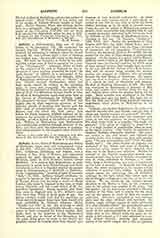

Aldfrith, a Northumbrian king, son of King Oswin; d. December 14, 705. He succeeded his brother, Ecgfrith. William of Malmesbury says he received his education in Ireland, where he passed his early life, and imbibed there a love of learning and learned men. He was well versed in the Scriptures. His taste for literature is shown by his parting with a large piece of land as payment for a copy of the “Cosmographi”. Adamnan, Abbot of Iona, on the occasion of his visit to England for the redemption of some captives, presented his book “De Locis Sanctis” to Aldfrith as a testimonial of the King’s appreciation of learning, and Aldhelm, Abbot of Malmesbury, dedicated his work on “Metres” to him. Aldfrith restored Northumbria, which had been nearly ruined by warfare in the preceding reign, to peace and prosperity. He recalled St. Wilfrid to his Bishopric of Hexham, and later on to that of York, but afterwards became hostile to him. An effort at reconciliation, made some years later at the Council of Aetswinapath by Aldfrith, failed. The dissension between Aldfrith and Wilfrid was largely due to their respective advocacy of two different schools of learning—the Roman and the Irish—and of administration, one favoring the Roman and the other the Irish party. Just before his death, however, Aldfrith enjoined on his successor the necessity of becoming reconciled with Wilfrid. Little is known of the results of Aldfrith’s rule. William of Malmesbury says Northumbria was considerably restricted through victories of the Picts, and Bede dates the deterioration of ecclesiastical administration in the kingdom from Aldfrith’s death.
JOHN J. A’ BECKET.

